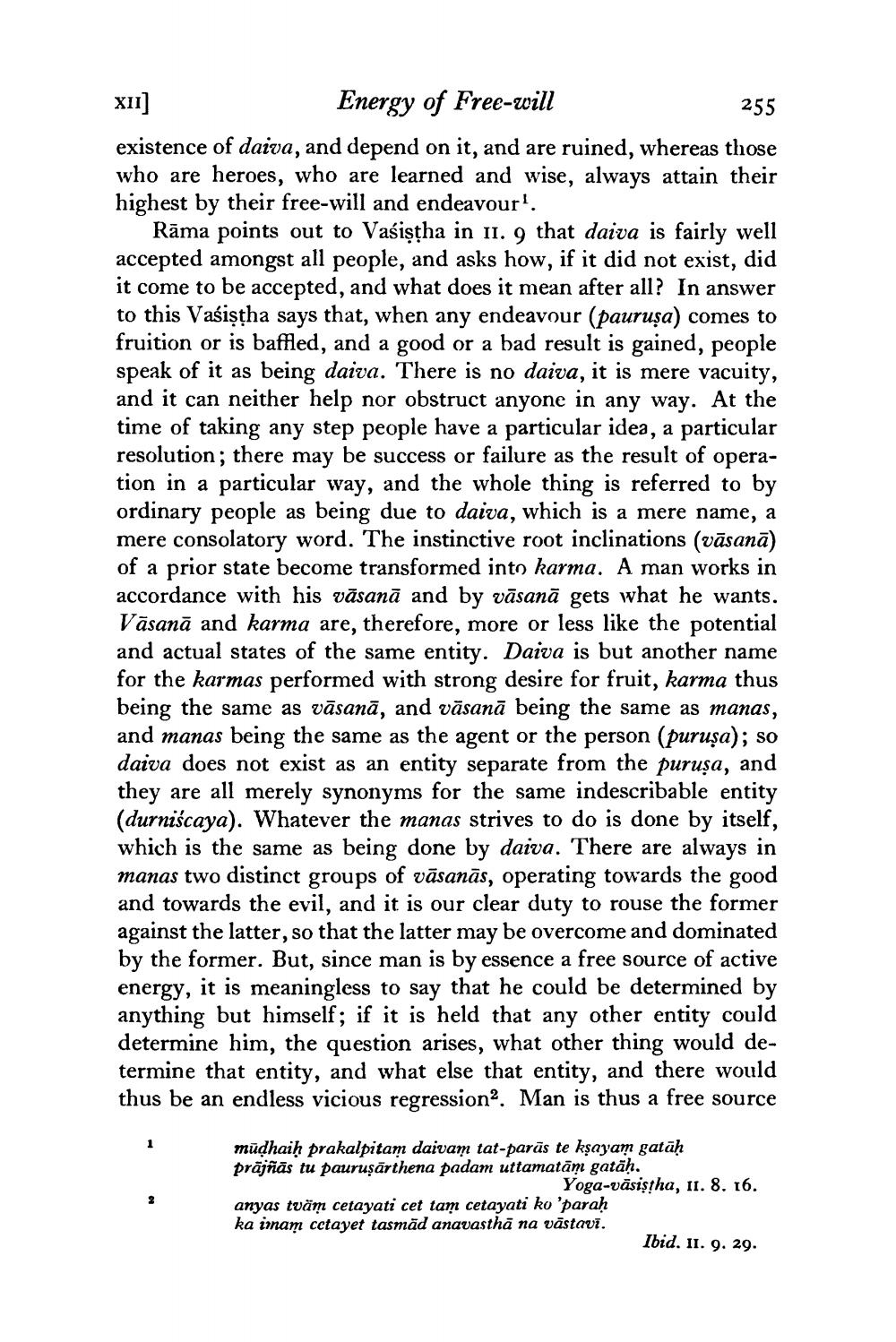________________
XII]
Energy of Free-will
255
existence of daiva, and depend on it, and are ruined, whereas those who are heroes, who are learned and wise, always attain their highest by their free-will and endeavour1.
Rāma points out to Vasistha in II. 9 that daiva is fairly well accepted amongst all people, and asks how, if it did not exist, did it come to be accepted, and what does it mean after all? In answer to this Vasistha says that, when any endeavour (pauruşa) comes to fruition or is baffled, and a good or a bad result is gained, people speak of it as being daiva. There is no daiva, it is mere vacuity, and it can neither help nor obstruct anyone in any way. At the time of taking any step people have a particular idea, a particular resolution; there may be success or failure as the result of operation in a particular way, and the whole thing is referred to by ordinary people as being due to daiva, which is a mere name, a mere consolatory word. The instinctive root inclinations (vāsanā) of a prior state become transformed into karma. A man works in accordance with his vāsanā and by vāsanā gets what he wants. Vāsanā and karma are, therefore, more or less like the potential and actual states of the same entity. Daiva is but another name for the karmas performed with strong desire for fruit, karma thus being the same as vāsanā, and vāsanā being the same as manas, and manas being the same as the agent or the person (purușa); so daiva does not exist as an entity separate from the purușa, and they are all merely synonyms for the same indescribable entity (durniscaya). Whatever the manas strives to do is done by itself, which is the same as being done by daiva. There are always in manas two distinct groups of vāsanās, operating towards the good and towards the evil, and it is our clear duty to rouse the former against the latter, so that the latter may be overcome and dominated by the former. But, since man is by essence a free source of active energy, it is meaningless to say that he could be determined by anything but himself; if it is held that any other entity could determine him, the question arises, what other thing would determine that entity, and what else that entity, and there would thus be an endless vicious regression2. Man is thus a free source
1
2
mudhaiḥ prakalpitam daivam tat-paras te kṣayam gataḥ prājñās tu pauruṣārthena padam uttamatām gataḥ.
Yoga-väsiṣṭha, 11. 8. 16.
anyas tväm cetayati cet tam cetayati ko 'paraḥ ka imam cctayet tasmäd anavasthā na vāstavi.
Ibid. 11. 9. 29.




